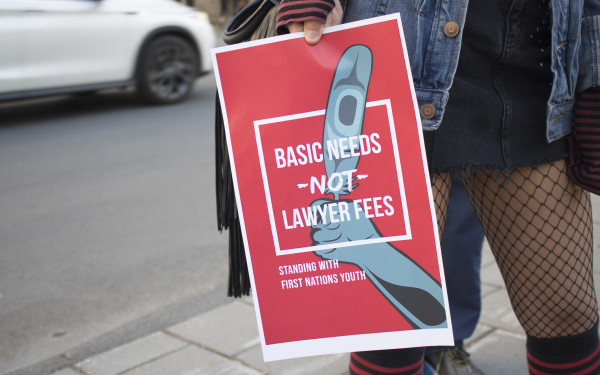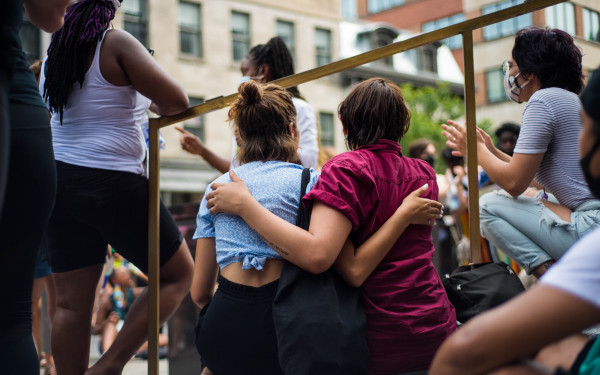“Every child matters”: Thousands of Montrealers commemorate first National Day for Truth and Reconciliation
“They didn’t have any shame taking our children, so I think we should just take this day for ourselves.”
Thousands of Montrealers gathered to commemorate the first National Day for Truth and Reconciliation on Sept. 30, a part of Canada’s Truth and Reconciliation week.
Demonstrators gathered at Place du Canada and marched to Place des Arts, chanting “No pride in genocide!” and “Every child matters!”
The march—organized by the Native Women’s Shelter of Montreal and the Assembly of First Nations Quebec-Labrador—was a call to action in demanding justice and reconciliation for Canada’s violent attempts to erase Indigenous peoples.
The commemoration came after the remains of 215 children were found in May at a mass grave at Kamloops Indian Residential School in British Columbia. Kamloops Indian Residential School was part of Canada’s residential school system, where over 150,000 Indigenous children were forcibly separated from their families from 1963 to 1996.
According to the National Centre for Truth and Reconciliation, more than 90 per cent of children in residential schools “suffered severe physical, emotional and sexual abuse,” and called the residential school system a cultural genocide.
The Truth and Reconciliation Commission was founded in 2008 to provide residential school survivors an opportunity to share their stories and experiences
“I want more than just [13] of the 94 calls done. I want them all done.” — Kahenientha Cross
“For decades, [the commission] tried to get your attention,” said activist Ellen Gabriel. “Why did it take to find the evidence of the children for you all to rise up together with us?”
The commission released its final report in 2015, detailing 94 calls to action directed at governments, communities and faith groups. So far, only 13 of the 94 calls have been completed.
“I want more than just [13] of the 94 calls done. I want them all done,” said Kahenientha Cross, a Concordia student who is Kanien'kehá:ka from Kahnawake.
Since the discovery at Kamloops, the reported number of Indigenous children’s remains that have been uncovered has risen to over 6,500. The search continues in over 1,300 potential unmarked burial sites in Canada.
Read more: “We can heal, but we can’t forget”
Throughout the demonstration, organizers paid their respects to Joyce Echaquan, who died on Sept. 28, 2020, at Joliette Hospital in the northeast of Montreal. Echaquan was a 37 year-old Atikamekw mother whose Facebook Live of hospital staff making derogatory comments to her in French went viral. Echaquan was administered morphine despite warning staff that she had a heart condition and could not handle the drug. The video sparked outrage in what is widely regarded as medical malpractice due to racism against Indigenous women.
Demonstrators also held banners that read “Justice for Joyce,” wearing orange shirts and holding orange signs.
Read more: Protesters demand justice for Joyce Echaquan
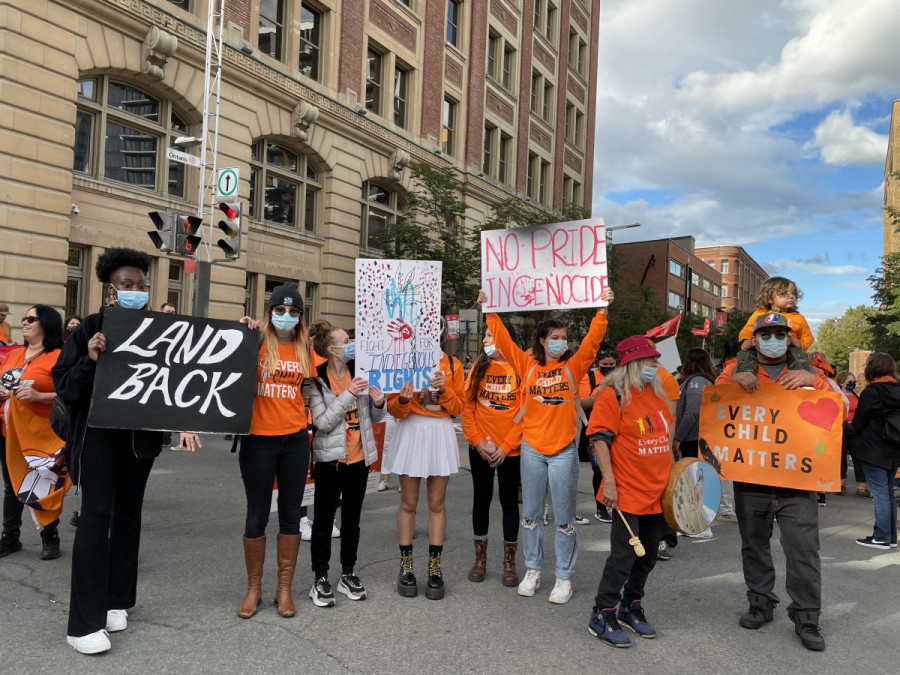
The National Day of Truth and Reconciliation is also known as Orange Shirt Day. The day honours Phyllis Webstad, a Northern Secwepemc (Shuswap) from the Stswecem'c Xgat'tem First Nation, whose orange shirt was taken from her on her first day of school.
The orange shirt has become a symbol of the stripping of Indigenous peoples’ culture, freedom, and dignity.
Organizers and activists note that despite the declaration of a National Day for Truth and Reconciliation, there is much more left to be done. In speeches, Indigenous elders called on all Canadians to join the fight for true reconciliation.
“I call on the people of Quebec to join us. This challenge is ours,” said Chief Gislain Picard.
Earlier in the day, Premier François Legault refused to recognize the National Day for Truth and Reconciliation as a holiday, saying, “We need more productivity in Quebec.”
Despite not being an official provincial holiday, Indigenous peoples and settlers celebrated the day in Montreal with chants, music, and moments of silence.
“[Let’s] celebrate what we have today,” said musician Pakesso. “They didn’t have any shame taking our children, so I think we should just take this day for ourselves.”

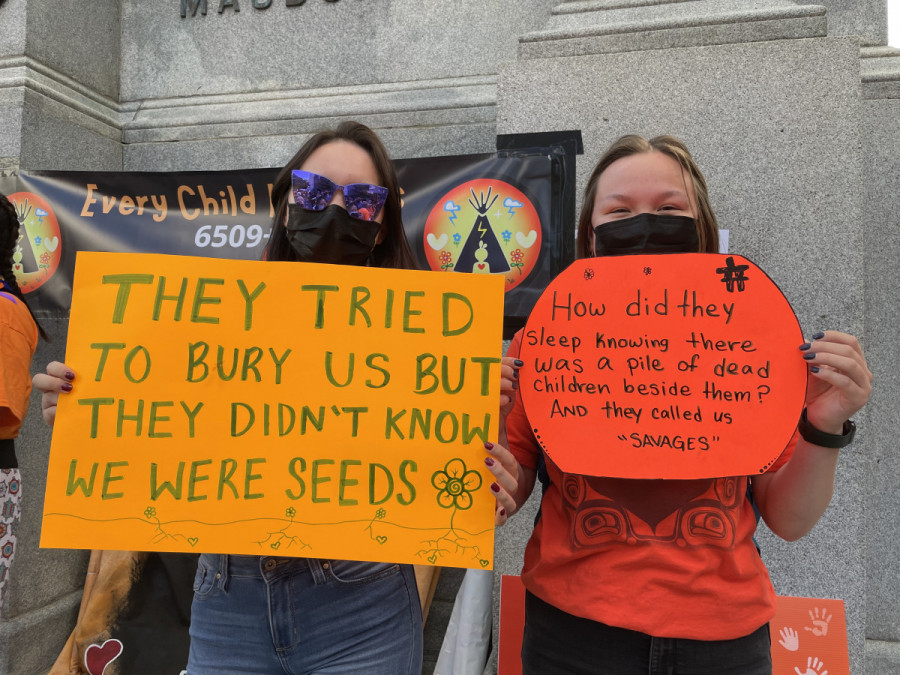
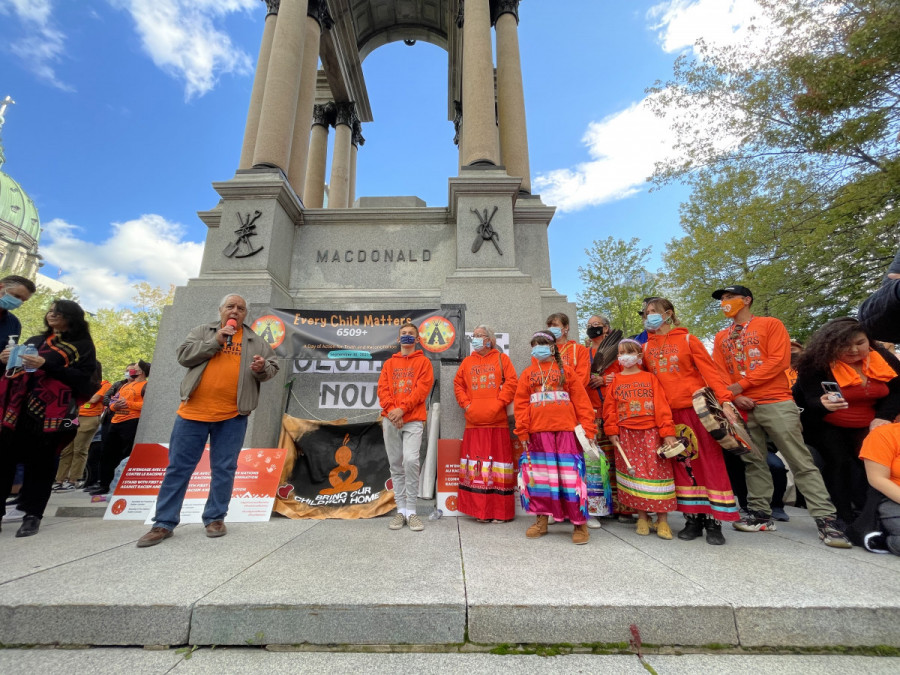
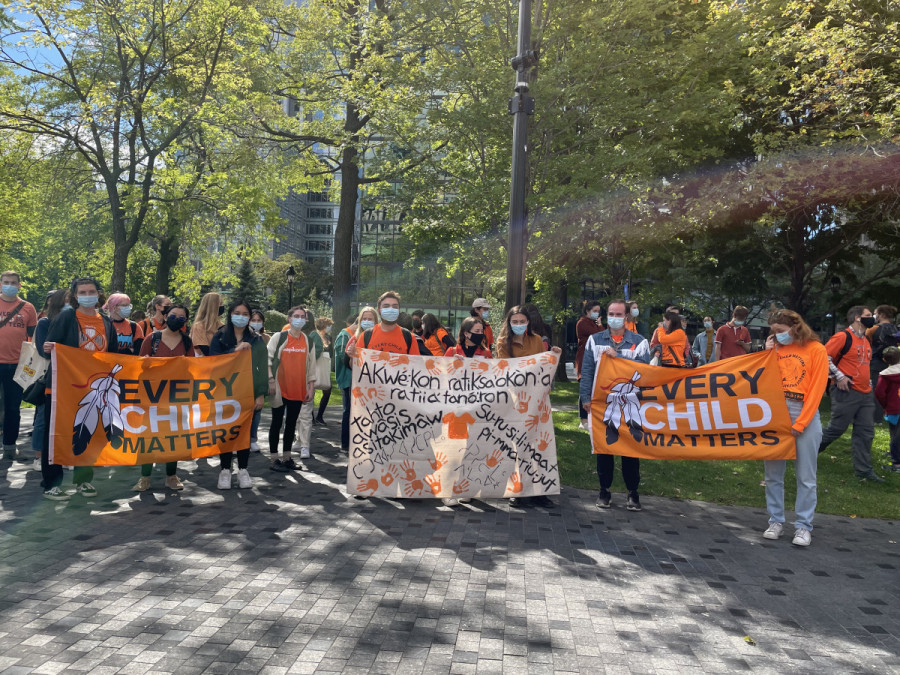
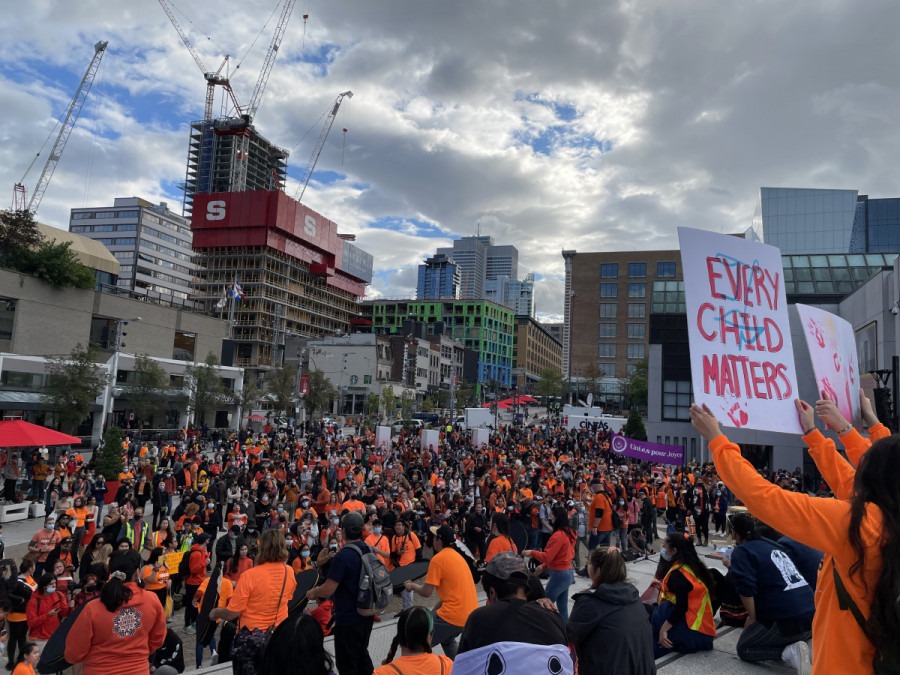


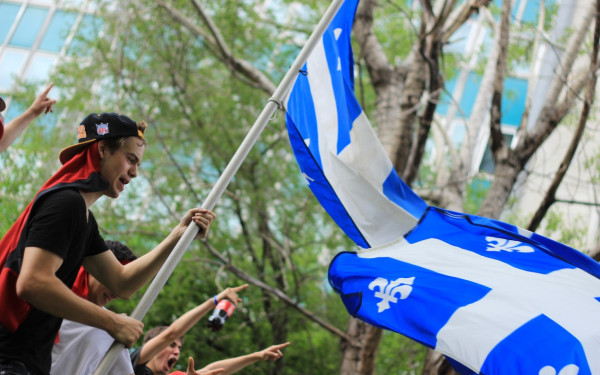
1_600_375_90_s_c1.jpg)
